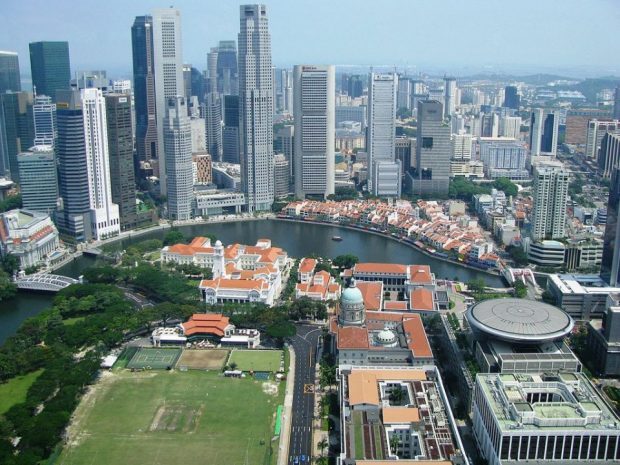Singapore affirms pragmatic stand as it navigates U.S.-China-rivalry

By Ivan Lim
Contributor to AsiaN
Singapore: As the Sino-American rivalry intensifies, especially over the South China Sea, Singaporeans are increasingly concerned about being drawn unwittingly into the big-power test of strength.
First, there is the pull of ethnicity, as the city-state has a predominantly Chinese population whose forebears had migrated from China.
Second, the Republic plays host to the United States military ships and aircraft at its naval bases. The US is the city-state’s security partner whose presence in the Asia-Pacific region helps to underpin stability and peace.
Some Singaporeans have wondered aloud how the government and people would react in the event of a clash between the US and China in the South China Sea. Washington has been challenging Beijing by sending its warships, including aircraft carriers, to sail close by Chinese-occupied islands in the Spratly Islands on the pretext of freedom of navigation in international waters.
The official line articulated by the Singapore government is that one of neutrality. Declaring a policy of “friend to all, enemy of none”, the Foreign Ministry has declared that as an honest broker, Singapore will deal “fairly and openly with both sides” in accordance with the country and people’s long-term interest.
On August 18 during his state-of-the- nation address, Prime Minister Lee Hsien Loong spoke at some length on how Singapore is navigating the troubled waters of US-China .strategy contest.
“We are all worried about the growing tensions between the United States and China. Their disputes have placed other countries in a dilemma,” he said at the annual National Day Rally.
Striking a balance, Mr Lee characterised China’s rise as beneficial even as it is reshaping the global political order.
“As the world’s pre-eminent power today, the US has to accommodate an increasingly powerful and influential China,” he said.
Noting this would not be easy, he added: “But the US needs to accept that China’s rise is inevitable, and that it is neither possible nor wise to prevent it.
Instead, the US should seek to build constructive bilateral relations, including economic co-operation, with China.”
Turning to China, Mr Lee urged Beijing to take into account the views and interests of other countries.
“By doing so, it will enhance prospects for peaceful and harmonious relations with other countries. It is also more likely to be viewed as a magnanimous country and a partner willing to work for mutual benefit,” he said.
Mr Lee noted that thus far the super-power and the rising power have been unable to find a way to .accommodate one another.
The continuing US-China jostling has put Singapore in a tight spot.
“If we support China, the US and other countries may think we do so because we are a majority-Chinese country,” said Mr Lee.
“And if we support the US, China may misunderstand our motivations.”
Reaffirming Singapore’s pragmatic stand as an independent entity, he said: “Our position is this: On any issue, our views and actions will always be based on principles and not sentiment.”
“Regardless of whom our audience is, whether it is in Singapore, Washington or Beijing, we always express the same views. When we can agree, we will do so. When we cannot, we must maintain our principled position and explain our stand.”





















































